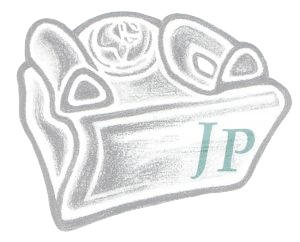In a beautiful statement that probably referred to the Kingdom of Heaven, Jesus proclaimed to his disciples, according to Luke, that “many prophets and kings” desired to see and hear what they (his disciples) are seeing and hearing. Matthew preserves the same saying, but in Matthew’s account the doublet is, “prophets and righteous persons.”[1] The wording of Jesus’ saying in these two accounts is so similar that it appears likely that their slight differences reflect literary, or editorial, changes rather than different versions of the saying uttered by Jesus on different occasions. If so, which of these gospel accounts preserves the more original form of Jesus’ saying? Did Jesus say “prophets and kings” or “prophets and righteous persons”?
“King” is not a usual Hebrew parallel or synonym for “prophet.” Israel’s kings certainly were not renowned for longing for the days of the Messiah and his Kingdom. Usually, biblical kings were the enemies of God’s prophets![2] Furthermore, the doublet “prophets and kings” does not appear in Hebrew literature. Nowhere in the Hebrew Scriptures, for instance, is “king” the equivalent of the word “prophet.”[3]
Matthew’s version of the saying also has its difficulties. Like “kings,” “righteous persons” (in Hebrew, צַדִּיקִים, tsadikim) is not a Hebrew synonym for “prophets.” Furthermore, as standard commentaries on the Gospel of Matthew suggest, the doublet “prophets and righteous persons” appears to be a Mattheanism, an expression peculiar to Matthew.[4] In the New Testament, only in Matthew’s text do we find “righteous persons” used as a synonym for “prophets.”[5]
Paid Content
Premium Members and Friends of JP must be logged in to access this content: Login
If you do not have a paid subscription, please consider registering as a Premium Member starting at $10/month (paid monthly) or only $5/month (paid annually): Register
One Time Purchase Rather Than Membership
Rather than purchasing a membership subscription, you may purchase access to this single page for $1.99 USD. To purchase access we strongly encourage users to first register for a free account with JP (Register), which will make the process of accessing your purchase much simpler. Once you have registered you may login and purchase access to this page at this link:
- [1] The saying appears only twice in the Gospels (Matt. 13:16-17; Luke 10:23-24). Most New Testament scholars assume that this “Double Tradition” saying was copied independently by Matthew and Luke from their common Source Q. For a detailed discussion of this passage, see David Bivin, Blessedness of the Disciples. ↩
- [2] For example, “And the king commanded Jerahmeel the king’s son and Seraiah the son of Azriel and Shelemiah the son of Abdeel to seize Baruch the secretary and Jeremiah the prophet, but the LORD hid them” (Jer. 36:26; RSV). ↩
- [3] The closest one comes to the doublet “prophets and kings” is Lamentations 2:9: “Her gates have sunk into the ground; he has ruined and broken her bars; her king and princes are among the nations; the law is no more, and her prophets obtain no vision from the LORD” (RSV). I. Howard Marshall (The Gospel of Luke: A Commentary on the Greek Text [Grand Rapids, MI: Eerdmans, 1978], 439) suggests: “Luke’s wording may reflect Isa 52:15; 60:3, where kings look forward to the era of salvation,” but this seems to me unlikely. In a saying of Rabbi Jonathan (first half of the third century A.D.) we find an example of “kings and prophets”: “Every bride who is modest in the house of her father-in-law is rewarded by having kings and prophets among her descendants” (b. Megillah 10b; Sotah 10b; trans. Soncino). ↩
- [4] Apparently, Greek δίκαιοι (dikaioi, righteous persons) is Matthew’s editorial replacement for a word he saw in the source he was copying. According to Abbott, “Matthew—who occasionally shows a tendency to paraphrase—may have habitually paraphrased ‘messengers of God,’ as ‘righteous persons'” (Edwin A. Abbott, Clue: A Guide Through Greek to Hebrew Scripture [London: Adam and Charles Black, 1900], 156). Manson agrees: “The latter collocation [‘prophets and righteous men’] is characteristic of Mt. Cf. Mt. 10:41 (M), 23:29” (T. W. Manson, The Sayings of Jesus [London: SCM Press, (1937) 1949], 80). Elsewhere, Manson observes, “This is a curious variant. Is it an editorial effort on the part of one of the Evangelists (presumably S[t]. Matthew; cf. Mt. 10:41), or does it presuppose a variation of translation?” (The Teaching of Jesus: Studies of Its Form and Content [Cambridge: Cambridge University Press, 1945], 32, n. 3). Hagner writes, “Matthew appears to have substituted δίκαιοι, ‘righteous persons,’ a favorite word of his, for Q’s more difficult βασιλεῖς, ‘kings’ (reflected in Luke 10:24)” (Donald A. Hagner, Matthew [WBC 33A-33B; Dallas: Word Books, 1993-1995], 376.) Nolland concurs, “Matthew’s pair ‘prophets and righteous ones’ is paralleled in Matt 10:41; 23:29, and so is likely to be Matthean” (John Nolland, Luke [WBC 35A-35C; Dallas: Word Books, 1989-1993], 576.). ↩
- [5] Three times: Matt. 10:41; 13:17; 23:29. Matthew also may have added Greek δίκαιος (dikaios, righteous; righteous person) or δίκαιοι (dikaioi, righteous; righteous persons) to his text, or substituted them for other words he found in the extracanonical source he copied: Matt. 1:19; 13:43; 23:28, 35; 27:19. ↩































































































